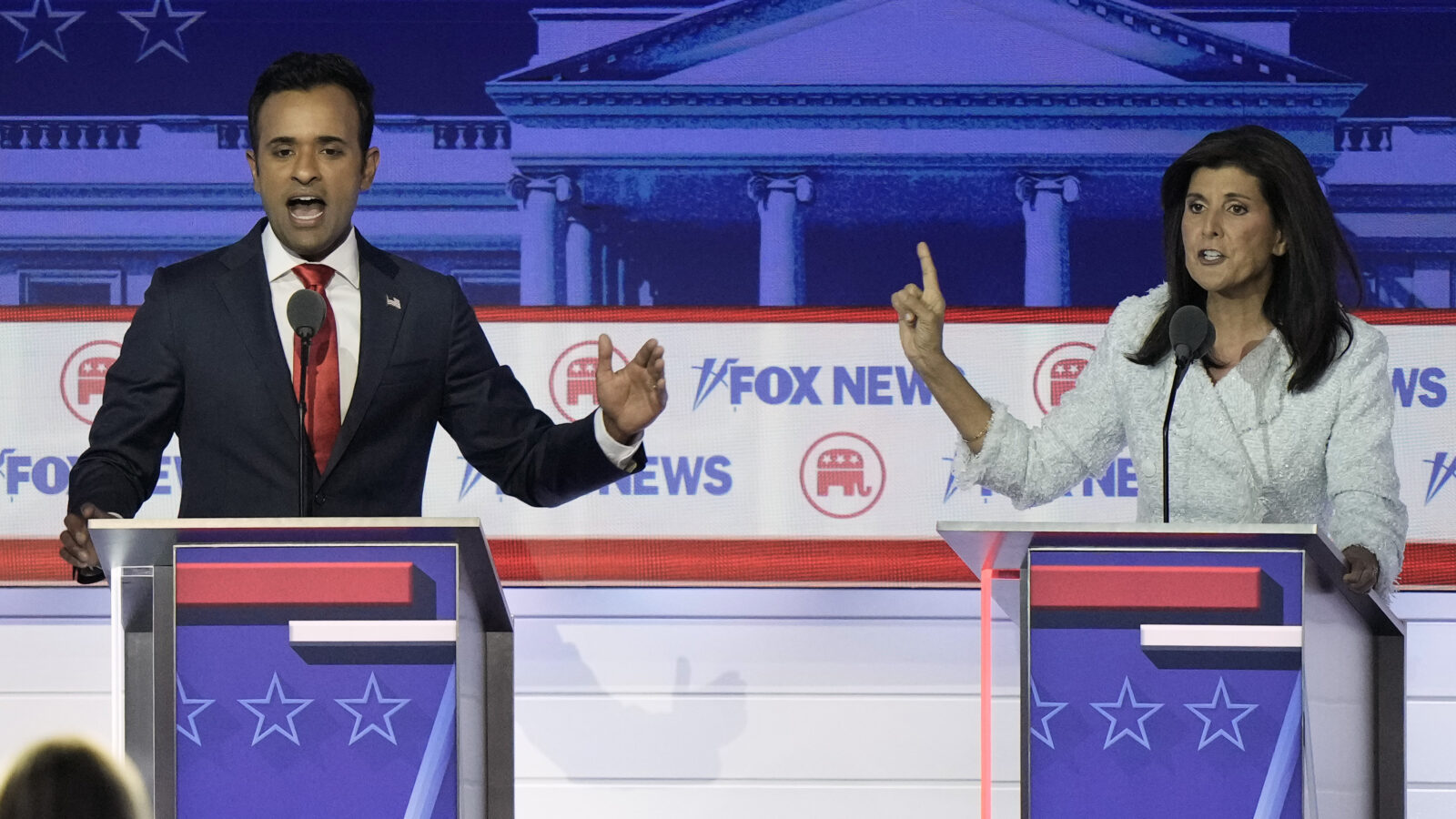The youngest participant on the debate stage this past Wednesday managed to stir quite a commotion among his fellow Republican presidential contenders. He took the opportunity to challenge their moral values, ridicule their commitments, and propose that due to his lack of experience in the government, he was uniquely equipped to address the nation’s issues.
For Vivek Ramaswamy, this was nothing new. Even before he found himself explaining complex concepts to Mike Pence or predicting Nikki Haley’s future in the defense sector, Ramaswamy had exhibited a similar boldness in the field of biotechnology. Back in 2015, when he was a 29-year-old hedge fund manager fresh out of Yale Law School, he was already lecturing the massive pharmaceutical industry about its flawed approach to drug development.
His company, Roivant, took on giants like Pfizer and Merck by uncovering the hidden potential in medications that these industry giants were too entrenched in bureaucracy to recognize. Ramaswamy boldly claimed to Forbes that Roivant’s endeavors were “the highest return on investment endeavor ever taken up in the pharmaceutical industry.”
The parallels between his recent debate performance and his earlier endeavors were striking. Similar to the mixed reactions he garnered on the debate stage, Ramaswamy faced a divided reception in the biotech sphere. Some hailed him as a visionary, an outsider revolutionizing an industry plagued by stagnation at its highest levels. However, others viewed him as a profit-driven opportunist capitalizing on the biotech boom of that era, with a business strategy that seemed more likely to enrich him and his hedge fund associates than to actually produce new medicines.
A Massachusetts Institute of Technology business professor, expressing both skepticism and caution in 2016, commented, “I know I run the risk of looking like a fool two or three years from now, but this sounds like some people are being bamboozled.” The first significant test of Ramaswamy’s audacious confidence arrived a year later, resulting in a significant setback when an Alzheimer’s disease treatment that Roivant championed failed in a high-profile clinical trial. This failure wiped out $2 billion in value and bolstered the belief that Roivant’s supposedly groundbreaking business model might have been overly clever and under-realistic.
In the wake of this failure, Ramaswamy wrote a letter to his employees, expressing both personal difficulty and a drive for redemption: “I am sorry for the people who bought into the hype, and I’m sorry for Alzheimer’s patients and families who had hopes for this compound… But frankly, I see the entire effort as a misuse of funds.” Despite the setback, Ramaswamy pledged to channel his emotions into redoubling his efforts to ensure the company’s success, acknowledging that failure could ultimately fortify Roivant’s resilience.
By then, Ramaswamy had already made contingency plans. Roivant’s pipeline of medicines, developed through its growing number of subsidiaries, and Ramaswamy’s adept fundraising had secured its future with substantial investments from notable sources like SoftBank and Viking Global. In 2021, he transitioned from the CEO position to become the executive chairman. Roivant’s identity evolved from that of a brash disruptor to a more conventional pharmaceutical company.
As of February 2023, Ramaswamy severed his ties with Roivant to embark on his presidential campaign. By that time, the company had secured FDA approval for six medicines and had several other drugs in advanced stages of development. Whether Roivant will fulfill Ramaswamy’s initial promise of becoming the most lucrative investment in industry history remains uncertain, but it’s presently valued at approximately $9 billion. Interestingly, the very pharmaceutical giants Roivant had once aimed to challenge, Pfizer and Merck, are reportedly considering acquiring it.
